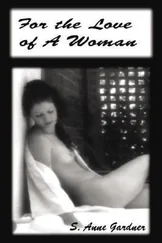Alice Munro - The Love Of A Good Woman
Здесь есть возможность читать онлайн «Alice Munro - The Love Of A Good Woman» весь текст электронной книги совершенно бесплатно (целиком полную версию без сокращений). В некоторых случаях можно слушать аудио, скачать через торрент в формате fb2 и присутствует краткое содержание. Жанр: Современная проза, на английском языке. Описание произведения, (предисловие) а так же отзывы посетителей доступны на портале библиотеки ЛибКат.
- Название:The Love Of A Good Woman
- Автор:
- Жанр:
- Год:неизвестен
- ISBN:нет данных
- Рейтинг книги:4 / 5. Голосов: 1
-
Избранное:Добавить в избранное
- Отзывы:
-
Ваша оценка:
- 80
- 1
- 2
- 3
- 4
- 5
The Love Of A Good Woman: краткое содержание, описание и аннотация
Предлагаем к чтению аннотацию, описание, краткое содержание или предисловие (зависит от того, что написал сам автор книги «The Love Of A Good Woman»). Если вы не нашли необходимую информацию о книге — напишите в комментариях, мы постараемся отыскать её.
The Love Of A Good Woman — читать онлайн бесплатно полную книгу (весь текст) целиком
Ниже представлен текст книги, разбитый по страницам. Система сохранения места последней прочитанной страницы, позволяет с удобством читать онлайн бесплатно книгу «The Love Of A Good Woman», без необходимости каждый раз заново искать на чём Вы остановились. Поставьте закладку, и сможете в любой момент перейти на страницу, на которой закончили чтение.
Интервал:
Закладка:
It doesn’t occur to her that if he had lived George might have become a different person, because she doesn’t think of becoming a different person herself.
She says, “No,” with a lack of enthusiasm that causes Mrs. Shantz to say, “I know. It’s hard meeting new people. Particularly-if I was you I would rather go and lie down.”
Jill was almost sure she was going to say “go and have a drink.” But there’s nothing being offered here, only tea and coffee. Jill hardly drinks anyway. She can recognize the smell on someone’s breath, though, and she thought she smelled it on Mrs. Shantz.
“Why don’t you?” says Mrs. Shantz. “These things are a great strain. I’ll tell Ailsa. Go on now.”
Mrs. Shantz is a small woman with fine gray hair, bright eyes, and a wrinkled, pointed face. Every winter she spends a month by herself in Florida. She has money. The house that she and her husband built for themselves, behind the Kirkhams’ house, is long and low and blindingly white, with curved corners and expanses of glass bricks. Dr. Shantz is twenty or twenty-five years younger than she is-a thickset, fresh, and amiable-looking man with a high smooth forehead and fair curly hair. They have no children. It is believed that she has some, from a first marriage, but they don’t come to visit her. In fact the story is that Dr. Shantz was her son’s friend, brought home from college, and that he fell in love with his friend’s mother, she fell in love with her son’s friend, there was a divorce, and here they are married, living in luxurious, closemouthed exile.
Jill did smell whiskey. Mrs. Shantz carries a flask whenever she goes to a gathering of which-as she says-she can have no reasonable hopes. Drink does not make her fall about or garble her words or pick fights or throw her arms about people. The truth may be that she’s always a little bit drunk but never really drunk. She is used to letting the alcohol enter her body in a reasonable, reassuring way, so that her brain cells never get soaked or quite dried out. The only giveaway is the smell (which many people in this dry town attribute to some medicine she has to take or even to an ointment that she has to rub on her chest). That, and perhaps a deliberateness about her speech, the way she seems to clear a space around each word. She says things of course which a woman brought up around here would not say. She tells things on herself. She tells about being mistaken every once in a while for her husband’s mother. She says most people go into a tailspin when they discover their mistake, they’re so embarrassed. But some women-a waitress, maybe-will fasten on Mrs. Shantz quite a dirty look, as if to say, “What’s he doing wasted on you?”
And Mrs. Shantz just says to them, “I know. It isn’t fair. But life isn’t fair and you might as well get used to it.”
There isn’t any way this afternoon that she can space her sips properly. The kitchen and even the poky pantry behind it are places where women can be coming and going at any time. She has to go upstairs to the bathroom, and that not too often. When she does that late in the afternoon, a little while after Jill has disappeared, she finds the bathroom door locked. She thinks of nipping into one of the bedrooms and is wondering which one is empty, which occupied by Jill. Then she hears Jill’s voice coming from the bathroom, saying, “Just a minute,” or something like that. Something quite ordinary, but the tone of voice is strained and frightened.
Mrs. Shantz takes a quick swallow right there in the hall, seizing the excuse of emergency.
“Jill? Are you all right? Can you let me in?”
Jill is on her hands and knees, trying to mop up the puddle on the bathroom floor. She has read about the water breaking-just as she has read about contractions, show, transition stage, placenta-but just the same the escape of warm fluid surprised her. She has to use toilet paper, because Ailsa took all the regular towels away and put out the smooth scraps of embroidered linen called guest towels.
She holds on to the rim of the tub to pull herself up. She unbolts the door and that’s when the first pain astonishes her. She is not to have a single mild pain, or any harbingers or orchestrated first stage of labor; it’s all to be an unsparing onslaught and ripping headlong delivery.
“Easy,” says Mrs. Shantz, supporting her as well as she can. “Just tell me which room is yours, we’ll get you lying down.”
Before they even reach the bed Jill’s fingers dig into Mrs. Shantz’s thin arm to leave it black and blue.
“Oh, this is fast,” Mrs. Shantz says. “This is a real mover and shaker for a first baby. I’m going to get my husband.”
In that way I was born right in the house, about ten days early if Jill’s calculations were to be relied on. Ailsa had barely time to get the company cleared out before the place was filled with Jill’s noise, her disbelieving cries and the great shameless grunts that followed.
Even if a mother had been taken by surprise and had given birth at home, it was usual by that time to move her and the baby into the hospital afterwards. But there was some sort of summer flu in town, and the hospital had filled up with the worst cases, so Dr. Shantz decided that Jill and I would be better off at home. Iona after all had finished part of her nurse’s training, and she could take her two-week holiday now, to look after us.
Jill really knew nothing about living in a family. She had grown up in an orphanage. From the age of six to sixteen she had slept in a dormitory. Lights turned on and off at a specified time, furnace never operating before or beyond a specified date. A long oilcloth-covered table where they ate and did their homework, a factory across the street. George had liked the sound of that. It would make a girl tough, he said. It would make her self-possessed, hard and solitary. It would make her the sort who would not expect any romantic nonsense. But the place had not been run in such a heartless way as perhaps he thought, and the people who ran it had not been ungenerous. Jill was taken to a concert, with some others, when she was twelve years old, and there she decided that she must learn to play the violin. She had already fooled around with the piano at the orphanage. Somebody took enough interest to get her a secondhand, very second-rate violin, and a few lessons, and this led, finally, to a scholarship at the Conservatory. There was a recital for patrons and directors, a party with best dresses, fruit punch, speeches, and cakes. Jill had to make a little speech herself, expressing gratitude, but the truth was that she took all this pretty much for granted. She was sure that she and some violin were naturally, fatefully connected, and would have come together without human help.
In the dormitory she had friends, but they went off early to factories and offices and she forgot about them. At the high school that the orphans were sent to, a teacher had a talk with her. The words “normal” and “well rounded” came up in the talk. The teacher seemed to think that music was an escape from something or a substitute for something. For sisters and brothers and friends and dates. She suggested that Jill spread her energy around instead of concentrating on one thing. Loosen up, play volleyball, join the school orchestra if music was what she wanted.
Jill started to avoid that particular teacher, climbing the stairs or going round the block so as not to have to speak to her. Just as she stopped reading any page from which the words “well rounded” or the word “popular” leapt out at her.
At the Conservatory it was easier. There she met people quite as un-well rounded, as hard driven, as herself. She formed a few rather absentminded and competitive friendships. One of her friends had an older brother who was in the air force, and this brother happened to be a victim and worshipper of George Kirkham’s. He and George dropped in on a family Sunday-night supper, at which Jill was a guest. They were on their way to get drunk somewhere else. And that was how George met Jill. My father met my mother.
Читать дальшеИнтервал:
Закладка:
Похожие книги на «The Love Of A Good Woman»
Представляем Вашему вниманию похожие книги на «The Love Of A Good Woman» списком для выбора. Мы отобрали схожую по названию и смыслу литературу в надежде предоставить читателям больше вариантов отыскать новые, интересные, ещё непрочитанные произведения.
Обсуждение, отзывы о книге «The Love Of A Good Woman» и просто собственные мнения читателей. Оставьте ваши комментарии, напишите, что Вы думаете о произведении, его смысле или главных героях. Укажите что конкретно понравилось, а что нет, и почему Вы так считаете.












